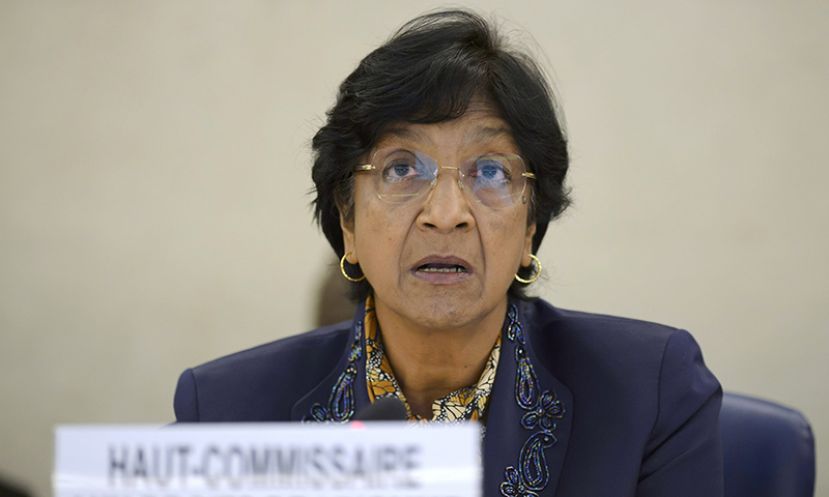The UN's top human rights official warned all sides in the two-week war in Gaza to not indiscriminately attack civilians, and that violations may amount to war crimes.
UN High Commissioner for Human Rights Navi Pillay said Wednesday that around three-quarters of the 650 Palestinians killed in the conflict were civilians, and thousands more have been injured. The toll, she said, includes 147 children killed in Gaza over the past 16 days.
Pillay noted an Israeli drone missile strike in Gaza City that killed three children and wounded two others while they were playing on the roof of their home. She also referenced an Israeli strike and naval shelling that struck seven children playing on Gaza beach, killing four from the same family.
“These are just a few examples where there seems to be a strong possibility that international humanitarian law has been violated, in a manner that could amount to war crimes,” Pillay told the 47-nation UN Human Rights Council, which was convened by China and Russia, among others.
“Every one of these incidents must be properly and independently investigated.“ Israel launched its operation in Gaza on July 8 in response to alleged heavy rocket fire out of Hamas-controlled Gaza. The fighting escalated last week with an Israeli ground offensive.
Pillay also said that Hamas and others were also violating international law.
“Once again, the principles of distinction and precaution are clearly not being observed during indiscriminate attacks on civilian areas by Hamas and other armed Palestinian groups,” Pillay said adding that not abiding by those principles could amount to war crimes and crimes against humanity.







